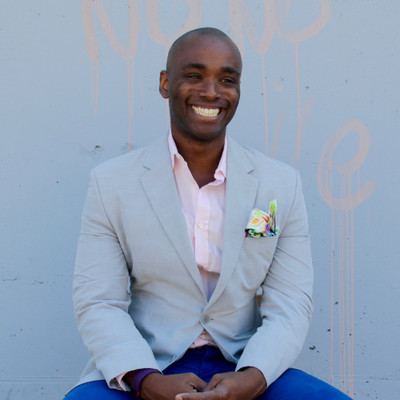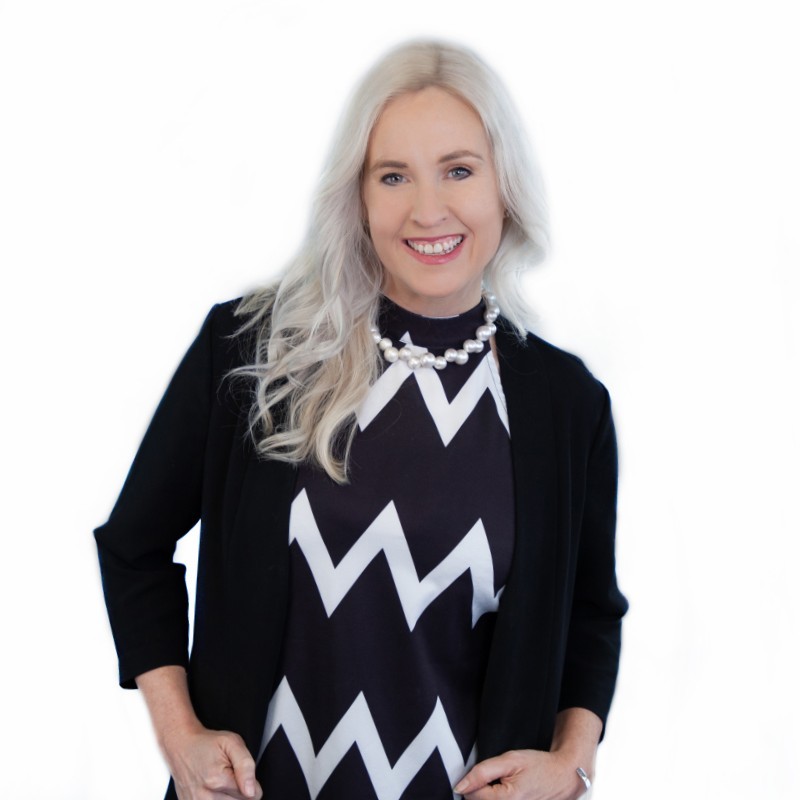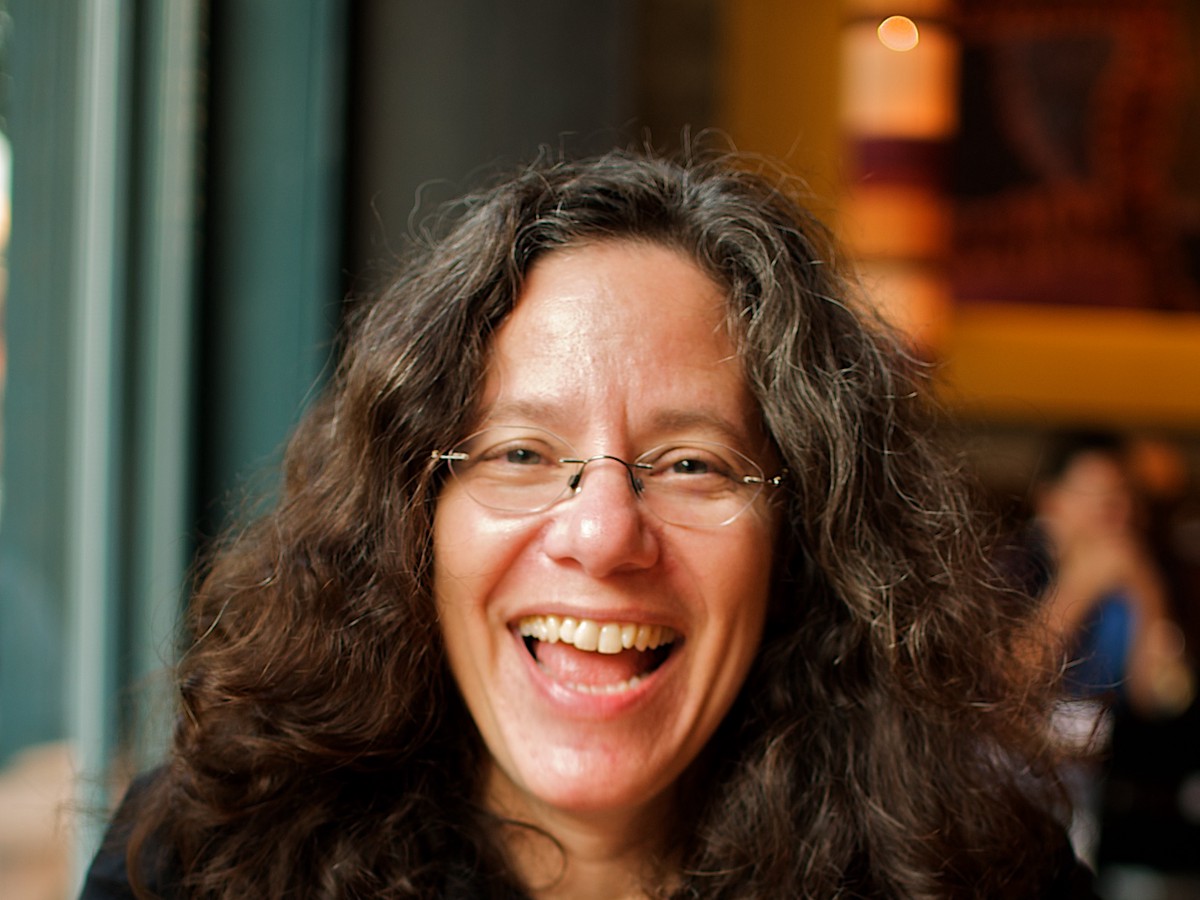Tech companies are supposed to be progressive and leading the charge into the future of work. So why are they still so horrible at hiring marginalized people and putting them into leadership?
Like other white male dominated industries, there are a lot of systemic ways that marginalized people get kept out. Terms like ‘culture fit’ are often used as an excuse for “not like us”. We are way beyond recognizing that there is a problem. It’s time to listen and start to make some real changes.
What we learned from this episode
-Why it gets really tiring to be the only black person in the room
-What gaslighting is
-The cheap excuses that privileged people use to get out of dealing with tough issues
-Why LeRon doesn’t code switch any more
What you can do right now
-Start preparing your team for having a minority on it, even before you have one
-Speak up for marginalized people when they aren’t in the room
-Don’t assume that someone needs to graduate from a famous college to be talented; recruit highly skilled people from other places
Key quotes
“We experience at least one or two racial microaggressions a week. We have to decide, okay, is this worth fighting for? Is this worth losing my job over? These are the things that black people and other nonwhite people have to deal with.”
“Radiohead is one of the most overrated bands in the entire world. Sorry. Give me Queen over Radiohead any day.”
“To be an ally, number one is speak up for us when we’re not in the room. A lot of times, black people and other nonwhite people, we’re not going to have a chance to be in that room. And so, speak up for us.”
“Lay that foundation so when you start to build the structure, it’s not wobbly. It’s already strong.”
Links
Today, our guest is LeRon Barton. He’s a writer and speaker and we’re talking today about Work Minus Hiring Discrimination. Hi, LeRon. How are you?
I’m doing pretty good, Neil. Yourself?
I’m doing excellent. I’m really excited to talk to you. I want you just to tell us about yourself and introduce yourself and then we’ll get into our topic a little bit. So give us the background.
Yes, sir. My name is LeRon Barton. I’m a writer and speaker and living in San Francisco, California. I am originally from Kansas City, Missouri. And I write a lot about race, mass incarceration, politics. I write about business, environmental racism, as well as dating. I’ve been published in Raconteur, salon.com, Ravishly, Black Enterprise, The Good Men Project. I’ve appeared on Al Jazeera. And I’ve also done a TEDx speech, “How I overcame my fear of stuttering“. I also am a network engineer as well. I’ve been in IT for nearly 20 years. So, talking about this subject was really near and dear to my heart. It’s definitely personal because I really want to see the industry change.
We’re going to have a good talk about this. I want to start off with an article that I read of yours first, which is about culture fit and about how usually we think of culture fit as something that is a good thing. You want to make sure that people fit into what you have going on. But it’s actually a way to almost hide some discrimination policy. So, give us a synopsis of that article.
So, I was approached by Raconteur, which is a great business journal out of London. And they approached me about writing about discrimination in Silicon Valley. And I was excited because this is something that I’ve been wanting to touch on for the longest. Being in San Francisco, which is the technological hub of America, I’m surrounded by so many companies such as Twitter, Facebook, Google, Apple, Yahoo, eBay. And the numbers behind that, it’s incredible. Facebook has an employee staff of little over 4,000 people and there’s about 80 black folks that work there. I believe Google’s at 2%, black, Facebook’s at 3% black. And so we’re wondering why are so few black people working in these companies? And so, I just thought back to whenever I would interview at a company or tech firm, they would always stress culture fit. “Well, you have to fit the culture here. We have a certain work culture here. Or our culture at this company is blah, blah, blah.” And so, I just found that that was a new way to discriminate against people and block them from saying, “Oh, well, yes, on paper, he or she was fantastic. But they didn’t really fit the work culture.”
And so, I wanted to investigate that. And so, what I did, Neil, was I spoke to a couple people within the industry, as well as I recalled my time in the industry, and it all matched up that it’s this combination of working with these people that you know, but also working with the people who are like you. And anytime that I’ve been in business, Neil, I know that the best outcomes, the best projects, the best decisions come from when there’s teams of people from all different parts of life, whether it be different ages, different races, different gender, different sexual orientations. We need this to be as diverse as possible to not only make the environment susceptible to new ideas but to also make the environment comfortable. It’s no fun being the only black person there. When you’re in, say, like 50 white people, and you’re like one of the two black people, that’s uncomfortable. And so, that’s what we as black people have to go through. And it is something broken there.
Tell us what that was like for you to go through all those hiring rounds. What are some things that, especially white people, may not even realize is going on in those situations?
First off, look, people congregate with people who are like them, which, I mean, that’s somewhat natural. We all hang within our groups. And what I found was a lot of just culturally ignorant comments. When I interviewed this guy named Paul Clark who worked at a startup in San Francisco. Because he was black, his coworkers automatically thought that he lived in Oakland. Or when I worked a Fortune 500 company, people were surprised that I didn’t live in a ghetto or people were surprised that, “Oh, my God. You travel? Really?” I mean, it’s almost the stereotypes that being black is lesser or we’re just born out of the struggle, which is true to a certain extent. But it’s almost like we were never thought of as getting the position based on our merits. America wants to espouse this thought of meritocracy. But whenever we come, we have to be a “diversity higher” or we’ve got to get in there because of affirmative action not because, I mean, not only did I go to college, but I had my CWNA, which is Certified Wireless Network Administrator. So, I have the skills, I deserve to be here.
So, whenever white folks talk about this topic, we always will say like, okay, we didn’t mean to do anything. There wasn’t anything intentional about that. Coming from your side of things, how does that sound to you? Does it sound like we’re just trying to make excuses? Do you believe that? Or does it sound like it’s just talk?
I think that it sounds like excuses because the reason that I say this is because this train of thought has been happening for so long, over years, years, years, and years. In the piece, I talk about how the founder of McAfee, which is an antivirus software company. He said that push to have more black people and more Latinos and Asians hired, he said, “I’m not with a quota.” And insisted, like, even when we’re trying to bring a problem to someone’s attention, it’s looked at as an attack. And that’s the amazing thing. It’s like instead of dialogue and instead of two people just listening and responding, there’s this feel of just like, okay, I’m being attacked. I’m going to shut down. I don’t want to listen to what you have to say. And that’s one of the problems that we have when we discuss this issue because it seems that many white people are always being put on the defensive, and so, they’re going to start attacking us, but we’re just basically trying to highlight a real problem.
You said it was very uncomfortable being the only black person in a group, in a team, or different things. What is that like to feel like that? And what are things that your team members or other people could have done to make it easier on you?
Being the only black person in an environment, for one, you’re always going to be that “black spokesperson”. So, if something happens nationally, if something racist happens, or if someone says something, they’re always coming back to ask you, “Well, LeRon, what do you think?” It’s almost, like, you’re going to represent every black person. And I mean, that just gets really tiring. Or when something racist happens or if something offensive happens within the company. And if you make a stink of it, you could then be shunned, and you can then be isolated. So, it’s almost like you’re going into an environment where you know that you’re going to experience some type of microaggression, you’re going to experience some type of racist… I don’t want to say attack, but you’re going to experience some type of racist incident that you’re going to have to negotiate with. My friend Alicia and I, we talk about this. It’s called a negotiation. So, let’s say, eight hour shift, and we experience at least one or two racial microaggressions a week. We have to decide, okay, is this worth fighting for? Is this worth losing my job over? These are the things that black people and other nonwhite people have to deal with. We have to decide is this bad enough. And that’s really sad because that takes a mental toll on you to the point where, at some point, you’re going to be beat down. And your work is going to suffer. You could have these mental bouts of just anxiety and feeling less.
So, those are some of the things about being the only black person. Also, one thing I would like to highlight, Neil, is about gaslighting, which, for those who don’t know what that is, that’s just let’s say that, Neil, I tell you, listen, I felt like this person was saying something that could be considered racist. And you tell me, oh, LeRon, he didn’t mean it like that. You’re just taking this too far. You really need to think about what he said. He wouldn’t do that. So, what you’re telling me is that my experience does not exist. My experience is wrong instead of actually believe me considering that I’m 40 years old, and being black in America, I experienced racism on a regular basis. So, instead of believing me and having my back, you disregard everything that I just said and everything that I experienced. And you’d be surprised. If you talk to women, you talk to black people, Latinos, Asians, and you ask them how many times a day, how many times a week they’re gaslighted, I guarantee you, you will not have time to listen to all of the incidents because it happens so regularly. So, Neil, what happens is that a lot of times, things are just not even reported.
We’re on the cusp of 2020 right now. I think it’s easy for us to slip into, those who are in the majority, to feel like, okay, we’ve progressed a lot, we’ve made a lot of progress. But in other ways, it feels like, man, we have not moved an inch. So, what does it feel like for you and your perspective to still be talking about these topics in this kind of depth and have those same numbers that you talked about, 2%, 3% of people working in these companies? What is that like for you?
I don’t want to sound like negative Nancy. This is my life. This is what it is to be black in America. So, you have to understand, like, San Francisco has an unemployment rate for black men over 50%. Think about that. That’s an incredible number. We live in a city where I like to call it liberal racism. So, you have people who are anti Trump because Trump is an overt racist. He’s overt white supremacist. But these same people who are anti Trump, they have a problem with justifying the mission. Right? They don’t have a problem with saying, oh, well, as soon as we move into a neighborhood, we’re going to change the entire dynamic of it, we’re going to call the police on you. This is my entire life. This is all that I know. So, I don’t know of anything else, which is sad thing. I mean, you would think that, look, I’m not saying that we have not progressed. But saying that we’ve made progress, and I remember this is something that Chris Rock said, he said saying that we’ve made progress means that we’re at fault, when there are so many qualified candidates coming out of places like the University of Northern Alabama, University of Illinois, the University of Missouri, and we’re not being hired. There’s qualified candidates coming out of HBCUs, black people can code here.
And this is something that I talk about in my talk that I’m going to give. Neil, it’s all about social capital. And that is a concept that I learned when I moved to the Bay Area, which is of a hyper realized version of connecting and it’s not about what you know but it’s who you know. And so, with the social capital that comes in creating a work culture where it’s like if you never hung out with me at Stanford, then why should I get you a job. Or if you don’t live in this particular neighborhood, then why should I get you a job. I mean, the young man, Paul, in the article I wrote, he said people got mad at him because he didn’t listen to Radiohead. And I’m like, Radiohead is one of the most overrated bands in the entire world. Sorry. Give me Queen over Radiohead any day. But it’s just things like that. What about hiring based off of skill? There was a post that was highlighted last week on LinkedIn. I don’t know if you’ve seen it. But there was a company and this was in the technological sector and this proves my point. There was a company that the job listing was candidate must have X, Y, and Z, preferably Caucasian, put that in the job description. And I was like, wow, just blatant. So, that’s what we’re dealing with.
Wow. That’s incredible. I want to talk about another article you wrote that was about code switching, which is a similar topic. When it comes to that, do you feel pressure to put on your best white language whenever you’re interviewing or doing your job? Or even coming on this podcast, do you feel like you’re having to talk in a different way and code switch?
No, because I realized that, at the end of the day, I am who I am. So, I’m LeRon Barton. Look, man, I have articles, I have podcasts. They’re out there. If you want to Google me, you can find out this is what I think, this is who I am. It’s one of those things, Neil, where it’s like, when I was younger, I would feel like that I would have to switch up who I am. And it’s like the duality of man. So, you have to be one way for this group and another way for this group. And so, when I was about 33 and I just decided I was like, you what? No. I am who I am. I’m not going to change. Now, obviously, I’m not going to be chanting Snoop Dogg lyrics in a company boardroom. But it’s like, at the same time, I refuse to really alter who I am. I can say words like apathy, antiquated, metamorphosis in the same breath as I say that’s what’s up. I can dig it. That’s who I am. And so, it’s all about being authentic. It’s one of the things where it’s like, being a black person, we’re automatically bilingual. So, it’s like, the way you may talk with your friends on a Saturday night, you’re taught not to talk that way to your work colleagues and to white people on a Monday morning. It’s a controversial topic because when I released the article, Neil, a lot of people from all races cheered me on. But there was some people who hit back and say, well, you wouldn’t talk to your mom that way. You wouldn’t go to an interview that way. And I’m like, well, I would, but it’s that delicate balancing act. I believe, as I said in the article, it’s walking the tightrope.
LeRon, we’ve used the term ally sometimes in some of our other shows about people who are in that privileged culture trying to say, look, I want to stick my neck out for other people that are out there. If I look at somebody who is in a predominantly white culture where that’s the privileged, what can they do to be an ally for minorities, and specifically for, let’s say, young minorities who are trying to get jobs who don’t have the benefit of having a bunch of articles and things under their name, but are just trying to get their feet wet and get started on things? What’s the best thing we can do?
So, a couple of things. First off, being an ally, it’s integrity. Integrity and ally, it’s pretty much the same thing. And my definition of integrity is doing the right thing when no one’s looking. So, if you see a cash register open with $500, you just don’t take it. There was a guy a couple days ago, he dropped a lot of money. And I returned it to him. And I’m not gonna lie, I thought twice, maybe three times. But I returned it to him because that’s the right thing to do. So, to be an ally, number one is speak up for us when we’re not in the room. A lot of times, black people and other nonwhite people, we’re not going to have a chance to be in that room. And so, speak up for us. I went to a talk and a woman was talking about how men can stand up for women. And she said something really important. She said men should advocate for women, meaning not only stick up for us but say great things about us, promote us. I think that specifically in the hiring region, I think that we need to look outside of MIT, Stanford, and Berkeley.
Listen, those are great schools. I would have loved to went to Stanford, MIT, or Berkeley, but there are equally intelligent people coming out of UMKC, coming out of University of Indiana. There are people going to the University of Arkansas, Arizona. We need to look outside of these traditional networks because that’s how you start to get different kinds of people in. And also, mentor. So, as an older black male, it is something that I have to do. And one of the things is that I have to help the youth that come after me. It doesn’t matter what color. I would help a white kid straight out of college as quickly as I would help the black kid straight out of college. The only difference is that the white kid coming straight out of college is not really going to need my help as much as the black kid. So, I think that by helping to open the door much, much wider.
And finally then just if you are in a situation, and I call this crunch time, if you’re in a situation where and this happens in a holiday time, family dinner, whatever. So, if you’re in a situation and if you hear someone say something racist, challenge them. Say straight up, hey, listen, that’s not okay. We need to make work environments very comfortable for anyone of any race, of any gender, of any sexual orientation, just any ethnicity come in and work because a happy worker is a great worker. And you’re a happy worker because you don’t have to worry about someone accusing you of stealing because you’re black. You don’t have to worry about someone making a joke about INS because you are a Latino. We need to cut that out and we need to have people stand up. Be an advocate. Be ally. And that’s tough, Neil, because you could lose friends. But dude, that’s people that you don’t need in your life.
I really liked, especially about the part about doing it when there’s no one else in the room or when there’s no black person in the room or other minority, even if you’re on a team where there are no minorities or there are no women or something like that, you can still start to cultivate that ground and start to prepare it so that when someone comes in that people are already ready. It’s not like, okay, now we have a black person on the team so now we need to start acting right.
Exactly, man. Lay that foundation so when you start to build the structure, it’s not wobbly. It’s already strong.
Well, excellent. LeRon, we could go on for a long time. But I want you just to tell people how they can stay in touch with you, where are all your writings put up.
Yes. This has been an awesome conversation, man. I really appreciate it. You can find me at www.leronbarton.com. I am on Twitter @mainlineleron. I’m on LinkedIn. I also have a professional Facebook writing page, LeRon L Barton. And I’m on Instagram @LeRonLBarton. I’ve really enjoyed this conversation and if anyone wants to continue this, if you liked what I had to say, if you didn’t, please go to my website. Shoot me an email. Let’s just keep the nasty grams at Neil. I definitely had a great time.
Thanks so much for being on the show and sharing all your stories with us. I appreciate it.
Definitely, man. Take care. Have a wonderful weekend.
LeRon L. Barton is a writer from Kansas City, Mo that currently resides in San Francisco, Ca. He has been writing poetry, screenplays, and short stories since he was way young. LeRon’s essays have appeared in Salon, The Good Men Project, Eastbay Express, Those People, AlterNet, SF Bay view, Buzzfeed, Gorilla Convict, and Elephant Journal. His first book, “Straight Dope: A 360 degree look into American drug culture” was released in Feb 2013. LeRon’s new book, “All We Really Need Is Love” is available on Amazon.com.












